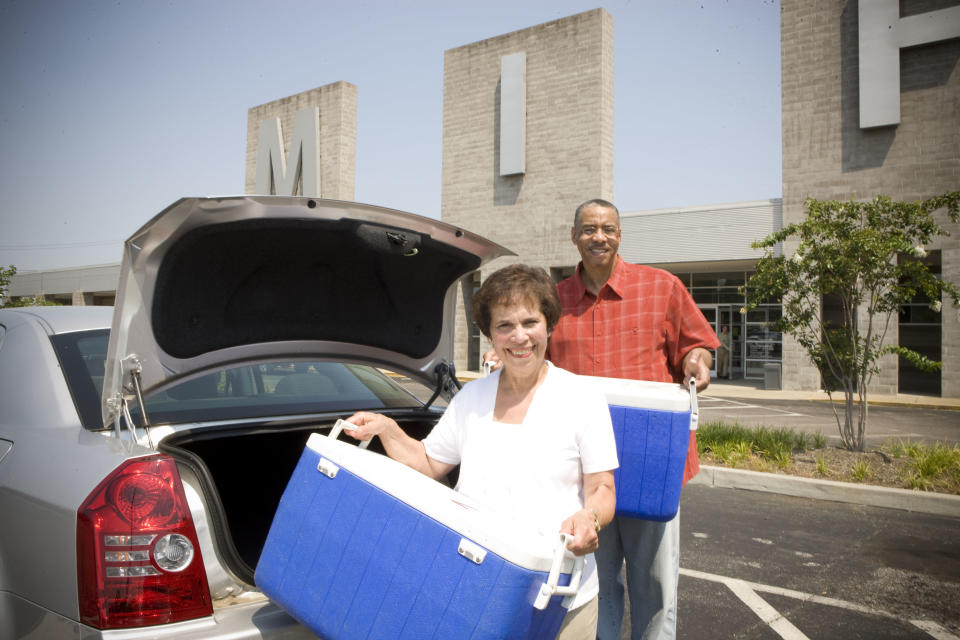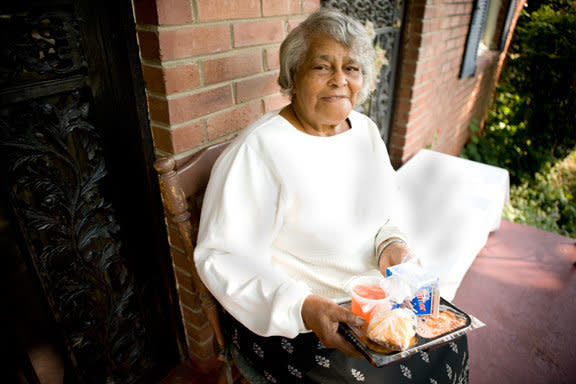Working Toward Dr. King's Dream In The City Of Good Abode

Memphis has long been known as the City of Good Abode, a moniker derived from the translation of its Egyptian name. And indeed, its location on a high bluff above the Mississippi River augured well for its establishment in 1819 as a pleasant trading and transportation center protected from flooding.
But on April 4, 1968, almost 150 years after it became a city, Memphis emerged as the scene, if not the metaphor, for monumental tragedy: the assassination of Martin Luther King Jr. Though Dr. King died of a single shot from a single shooter, the context of this event bespoke an ethos of racial discrimination, injustice and peril for many of Memphis’ African-American citizens.
Dr. King came to Memphis for the second time to lead the cause of African-American sanitation workers. After repeated attempts to organize were thwarted by city leaders, the workers went on strike in February 1968 after years of suffering from low pay and degrading and unsafe working conditions, culminating in catastrophe when two employees were crushed to death in defective equipment.
In his famous “Mountaintop” speech in Memphis the night before he died, Dr. King said, “When people get caught up with that which is right and they are willing to sacrifice for it, there is no stopping point short of victory.”
And, though Dr. King had no way of knowing it at the time, since the early ’60s there’d been a growing movement among people of faith in Memphis to provide opportunities for interracial dialogue and understanding ― to “get caught up with that which is right” and be “willing to sacrifice for it.”
By fall 1967, this group had formulated a plan to study the feasibility of establishing a central metropolitan interfaith agency to mobilize the compassion and resources of the faith community. The chaos and panic that followed the assassination became the catalyst for the birth of the unique and remarkable organization that celebrates its 50th anniversary next year: the Metropolitan Inter-Faith Association, or MIFA.

MIFA was established on Sept. 15, 1968 to help congregations build awareness of the social issues in the city and to stimulate their support for positive change. We are now in an age when vigorous support for social action has become standard among people of faith, but in 1968, especially in the South, this was often considered a radical, even dangerous, idea. Many whites were unwilling to align with African-Americans or even acknowledge they had a responsibility to be involved in social action. And many African-Americans could not trust efforts by white churchgoers would be effective. Though MIFA’s founding group was all clergy and laypeople, it took years for congregations to commit to supporting MIFA with service and financial gifts.
In 1971, with depleted funding and feeble community support, the organization almost collapsed. But salvation came through the vision of executive directors who reinvented MIFA as a service organization. In 1974, MIFA was awarded a contract with VISTA (Volunteers in Service to America), and the tireless and imaginative vision of early VISTA volunteers led to the establishment of such programs as Meals on Wheels. Other programs, such as the Mid-South Food Bank, have long since become independent agencies of their own. Depending on the flux of community needs and resources, MIFA has had as many as 25 programs and as few as the current eight, which target the needs of seniors and preventing homelessness for families.

MIFA has been called the “Memphis Miracle,” not only because it emerged through interfaith and interracial cooperation at a time when that was rare, but also because, unlike many organizations founded to support Dr. King’s dream, it has survived and thrived for almost 50 years. Through our efforts, our partnerships, and the work of countless volunteers, there has been much progress in race relations, community building and service for those in need.
But despite this progress, we now find ourselves in a city divided in many ways. There is once again fear, hate, suspicion and misunderstanding. Guided by its vision of uniting the community through service, MIFA offers a remedy that is both profound and practical. We can know our neighbors. We offer Memphians the opportunity to know their neighbors ― more than 50,000 of them each year ― in their greatest areas of need: nutritious food, transportation, companionship and advocacy for seniors, plus shelter for families in crisis. And perhaps most importantly, in so doing we support their dignity and independence and their sense of belonging to a large community that cares about them.

In a frightened, grieving and polarized city, the founders of MIFA invited people to look at those most different from them and say, “You are my brother; you are my sister.” We have learned neighborly love is not a finite or exhaustible commodity but a spirit ― one that strengthens and expands as it is shared. We see ourselves in others and allow our connections to be more important than anything that might be threatening or strange.
Born as it was out of the fear and discord following Dr. King’s assassination, MIFA’s original ― and ongoing ― purpose is to help build a healthy, thriving community. The core value that endeavor requires is love — love of the best we can do and love of the best we can find in each other. This is MIFA’s way of helping to build a city of good abode for all.
This article originally appeared on HuffPost.


